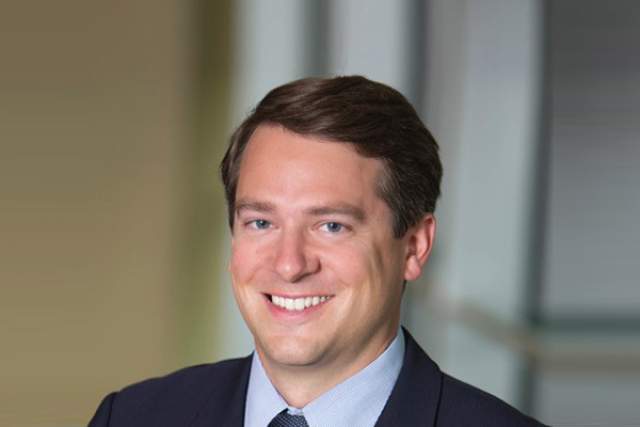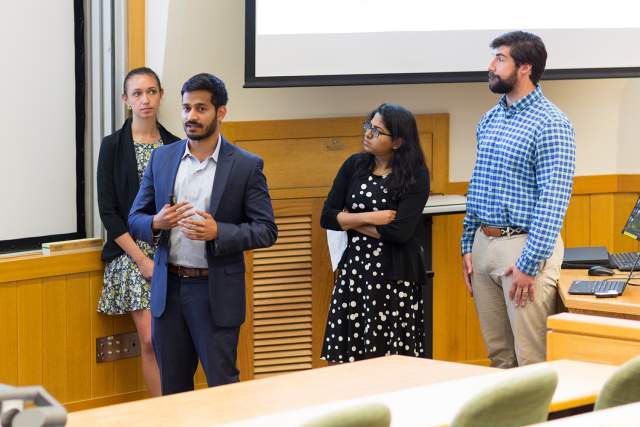In order to make the center’s focus on these issues clear, McKinley has been promoting three core themes that the center addresses: global challenges (such as climate change, trade wars, and rising economic inequality), civil society and the responsibility of businesses to the communities in which they operate, and the sustainable economy, which includes topics like sustainable finance, impact investing, and the lifecycle of resources. The center will serve students, he says, by engaging them on these topics through experiential learning opportunities, equipping them to better understand the issues, and empowering them to help drive long-term solutions.
Toward those ends, the center is piloting a few new programs this year. One is an Ecosystem Deep Dive on environmental, social, and governance (ESG) investing, where 15 mostly first-year students traveled to New York to meet with leading ESG investors to better understand the challenges and opportunities of sustainable investing. Another is an early-stage impact investing workshop, which the center co-organized with Daniella Reichstetter T’07 of the Center for Entrepreneurship and clinical professor Curt Welling D’71, T’77. Nearly 70 students attended the six-hour workshop and learned about deal sourcing, diligence, impact measurement, and reporting. These programs build on the well-established Fellows programs and events such as the Killingstad Global Insights series, and the annual Halpern Lecture and Negotiating Ethics series.
Remembering a Pioneer
The Patricia A. Palmiotto Business & Society Fund celebrates Pat’s immeasurable impact on Tuck and the Upper Valley communities. Palmiotto passed away on February 4, 2018.
Patricia A. Palmiotto arrived at Tuck in 1994, ready to make a difference. While she served as the director of student affairs, Palmiotto had an idea to create an entity at Tuck devoted to studying and practicing how businesses can be a force for good in their communi-ties and the world at large. Working with students on a business plan and a concept, she created the Allwin Initiative for Corporate Citizenship, one of the first such resources at Tuck.
She may not have known it at the time, but Palmiotto ended up creating the model for centers at Tuck today, as student-oriented pathways for learning and applying business topics with an eye towards knowledge gather-ing, personal transformation, and career development.
“The Allwin Initiative always had a two-fold mission,” recalls Bob Hansen, the Norman W. Martin 1925 Professor of Business Administration, who was the second faculty director of the initiative (after Professor John Vogel). “For those students who were really interest-ed in business and society, it gave them depth. And it provided a breadth of knowledge to the greater student body, since Pat felt very strongly that it was a topic to which all the students should be exposed.” At the same time, Palmiotto built a mini career development office, keeping a database of companies and non-profit organi-zations where students interested in corporate citizen-ship might be able to find jobs.
Palmiotto became the executive director of the Allwin Initiative in 2001, and in 2012 she headed the newly-created Center for Business & Society, which has recently transformed into the Center for Business, Government and Society. Many of Tuck’s hallmark pro-grams at the nexus of business and society, including TuckGIVES and the Business & Society Conference, owe their vibrancy to Palmiotto’s vision and commitment.
“Her deep love for the students always came through,” Hansen says, “and she cared about Tuck im-mensely. This was her way of making the school better.”
In celebration of Palmiotto’s immeasurable impact on Tuck and the Upper Valley communities, her family has created the Patricia A. Palmiotto Business & Society Fund, which will help prepare business leaders for the evolving complexities of today’s global economy.
To learn more about the fund, please contact Hannah Payson, the program manager at the Center for Business, Government & Society, at Hannah.K.Payson@tuck.dartmouth.edu, or visit cbgs.tuck.dartmouth.edu.
Center for
Health Care
F
or many years, the Health Care Initiative was the nexus of health care-related activities on campus. As more students arrived at Tuck with an intention to learn about the industry (9 percent of each of the Classes of 2018 and 2019 interned or took a job in health care-related fields), it became clear that “initiative” was the wrong word to describe the breadth and importance of the programming on offer. So this summer, the Health Care Initiative became the Center for Health Care. “We aim to serve the students interested in health care,” says executive director Suzie Rubin, “and also make sure that all Tuck students have the opportunity to learn about health care even if they don’t intend to work in the sector. With health care accounting for 18 percent of U.S. GDP, we view our mission as preparing business leaders to address the challenges of health care. With 24 percent of students taking at least one health care course last year, there is strong interest among students.”
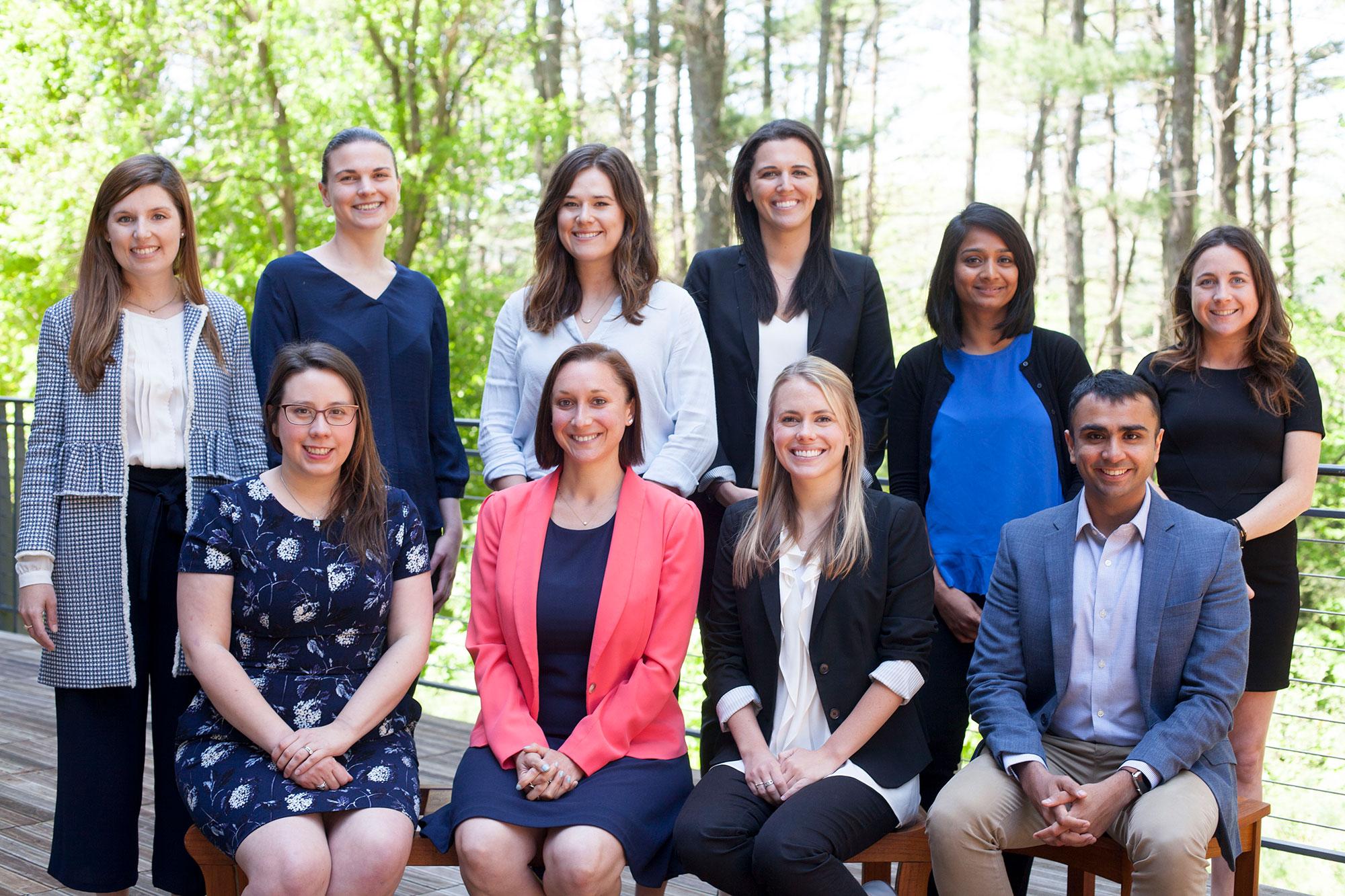
The center provides a platform for students, faculty, alumni, and other industry leaders and experts to connect Tuck to the challenges and opportunities in health care. | Laura DeCapua Photography
The center’s mission to connect learning and practice is evidenced by its role coordinating the health care elective courses for the Tuck MBA curriculum. Connecting with alums and practitioners in the field is a key objective for the center and is exemplified by the elective mini-course, Investing and Deal Making in Health Care. The course is taught by two highly-experienced practitioners in the field: Michael Carusi T’93, a general partner at Lightstone Ventures, and
Michael McIvor D’86, T’93, vice chairman, Americas Mergers & Acquisitions at Bank of America Merrill Lynch, together with Rubin and Michael Zubkoff, the faculty director of the center. The course provides a practitioner's point of view on the players in health care investing, how they interact, and ultimately, how they do business together. “The course offers both a health care lens on deal making and an investing lens on health care and has been a popular option for students interested in learning more about both,” Rubin explains.
We like to say that health is everyone’s business.”
Suzie Rubin, executive director, Center for Health Care
In addition to the elective courses, the center coordinates two joint-degree programs: the MD/ MBA offered in partnership with the Geisel School of Medicine and directed by Zubkoff; and the MBA/MPH program offered through Tuck and the Dartmouth Institute for Health Policy and Clinical Practice, which is directed by professor Paul Gardent T’76.
“We are continually evaluating how best to bring insight to students both inside and outside of the classroom and we welcome the engagement of alumni to further the mission of the center,” Zubkoff says. With elective offerings, visiting speakers, and related events, the Center provides a platform for students, faculty, alumni, and other industry leaders and experts to connect Tuck to the challenges and opportunities in health care. “We like to say that health is everyone’s business,” Rubin says.
Center for
Private Equity
And Venture
Capital
T
he Center for Private Equity and Venture Capital (formerly the Center for Private Equity and Entrepreneurship) continues its wide range of industry-specific programs for students, and now is under the direction of new executive director, Jim Feuille D’79. He’s joined by Gordon Phillips, the Laurence F. Whittemore Professor of Business Administration, who serves as the faculty director of the center.
Over the years, the center has built robust offerings for students interested in private equity and venture capital. Every spring, 12 fellows are selected through an application process. They work on research projects or go out and learn in the field with alumni; assist Phillips with the CPE Forum, an online journal that publishes articles by academics and practitioners; organize the annual Private Equity Conference; and produce the CPEVC newsletter.
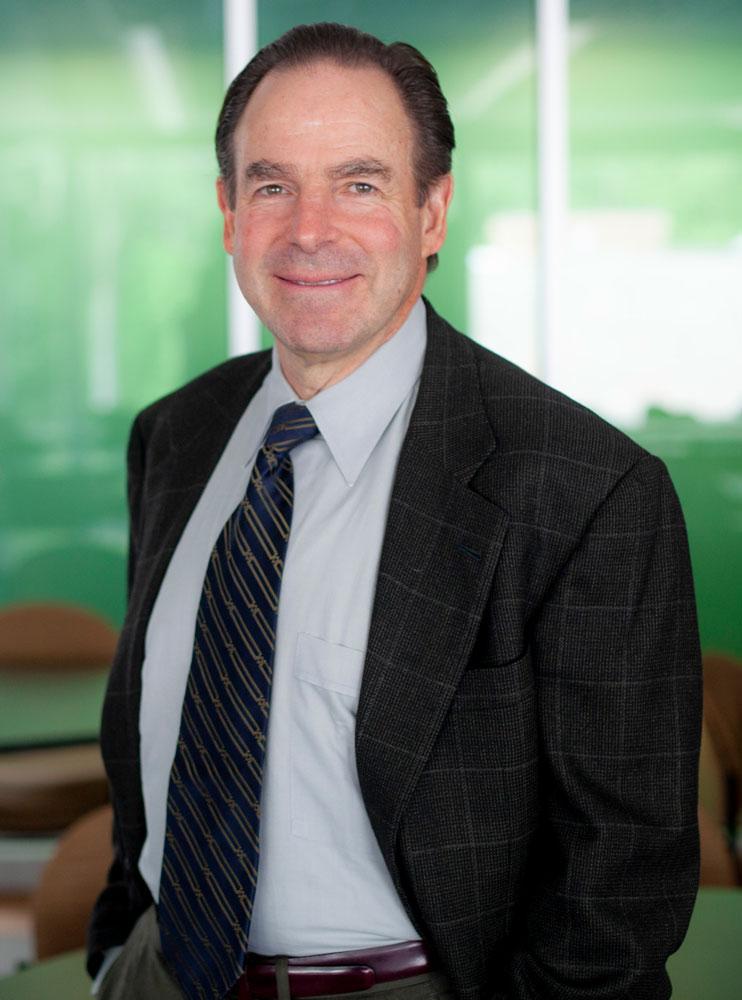
Jim Feuille D'79 is the executive director of the newly named Center for Private Equity and Venture Capital. | Laura DeCapua Photography
Feuille is an exciting addition to the center. After he graduated from Stanford with a JD/MBA, he worked for boutique investment banks that focused on the burgeoning Silicon Valley tech sector of the 1980s and 90s. A few of companies he worked with include Intuit, Symantec, BMC Software, and McAfee. “Most large investment banks showed up when they sniffed an IPO around the corner. I was finding the companies three to five years before, identifying and developing relationships with the best emerging companies and best management teams early, and my deals consistently performed strongly in the aftermarket,” Feuille says. Eventually, Feuille switched to the venture side of the ecosystem in 2002, when he joined San Francisco-based Crosslink Ventures. For 16 years, he served as a general partner of four traditional venture funds, and four crossover (hybrid public/private) funds. Feuille has led Crosslink’s investments in four companies which achieved multi-billion market cap exits—Omniture (acquired by Adobe 2009 for $1.8B), Ancestry.com (acquired by Permira 2012 for $1.6B), Pandora, and Coupa.
Feuille remains a general partner for six funds, and works with eight portfolio companies, but he’s not working on new deals for the firm. “I’ve moved to Hanover and I’m focusing on Tuck,” he says. “In addition to working with students interested in private equity and venture capital, one of the appealing aspects of this job is that it requires me to continue to actively network in this space. I have a ton of personal relationships I can continue to network with, and a ton of Dartmouth and Tuck alumni in the private equity and venture capital areas I now have an excuse to talk to, since they all have a reason to talk about what’s going on at Tuck in private equity and venture capital.” He’s looking forward to developing tighter relationships with other centers at Tuck, all of which overlap with private equity and venture capital in some way, as well as with Thayer and the Magnuson Center for Entrepreneurship. “There’s an opportunity to get much more integration with the rest of the school,” Feuille says, “which should create more curricular and co-curricular opportunities for Tuck students.”
Center for
Digital Strategies
F
ounded in 2000 with generous gifts from Ed Glassmeyer T’68 and Roger McNamee T’82, the Center for Digital Strategies (CDS) is dedicated to teaching Tuck students and the broader community about the ever-changing roles of digital technologies in business strategy. Led by faculty director Alva Taylor, an associate professor of business administration, the CDS does this in two general ways: through speaker series and workshops, and more tailored programming for students with a deeper interest in technology.
An example of the former is the Britt Technology Impact Series, which is celebrating its 10th anniversary this year. Created by Glen Britt T’72, the former chairman, president, and CEO of Time Warner Cable, the series has brought more than 150 speakers to campus from 120 companies, bridging the gap between in-class learning and what’s happening in the real world. The theme of the first series was video, and since then it has tackled topics such as mobile, social media, cloud computing, big data, and the internet-of- things. This year, the focus is emerging technology.
Another example of programming for the broader community is the brand-new Technology 101 Learning Series, which began this fall. It’s focused on translating foundational technology concepts into easy-to-understand language to prepare students for a world dominated by digital businesses. The first four sessions cover the technology stack, cloud computing, software-as-a-service, and application programming interfaces (APIs).
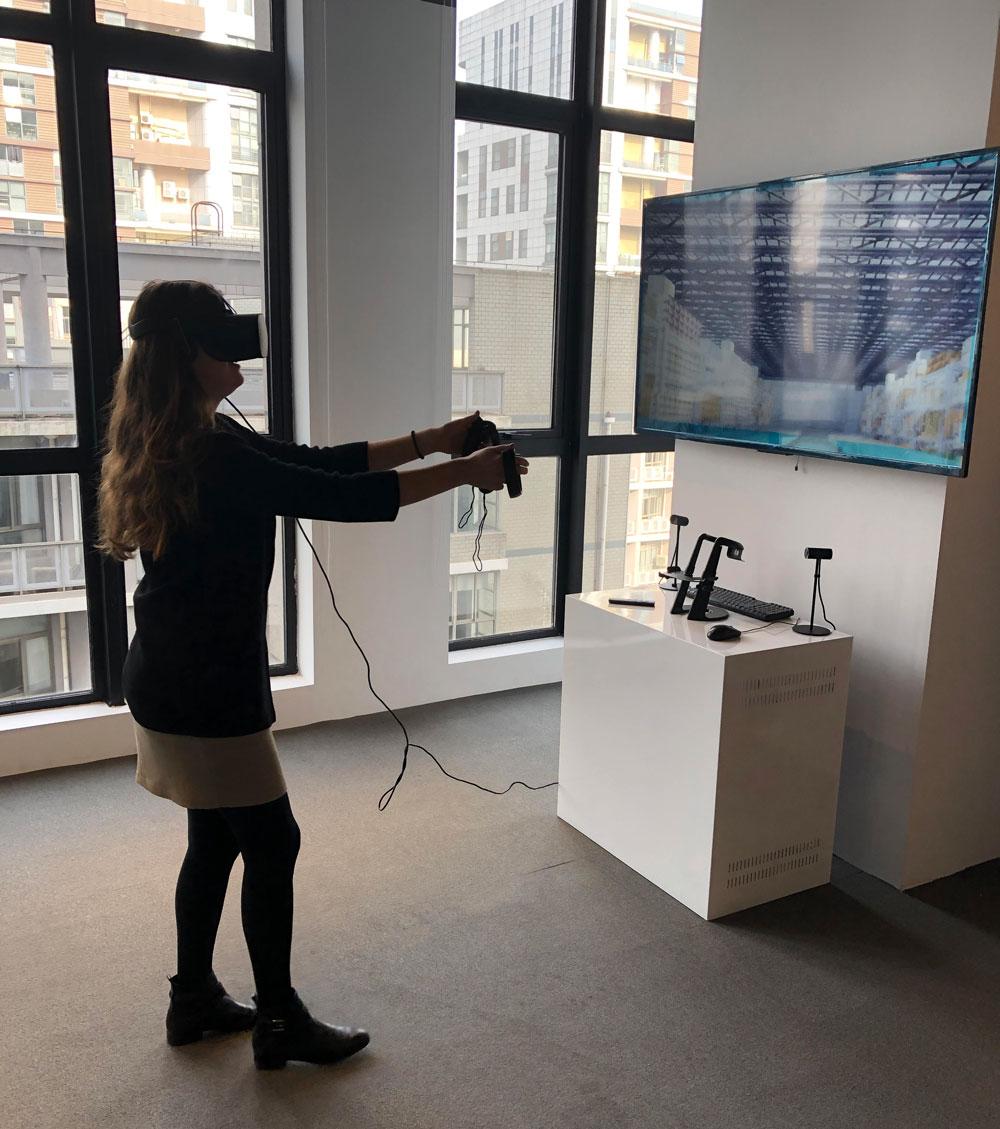
In late 2018, the Center for Digital Strategies at Tuck organized a small group trek to Shanghai to get an intimate, insider’s understanding of the digital strategies, challenges, and opportunities of some of the leading technology-related firms in China.
Last year, the center launched a program targeted at first-years: the MBA Associates. It’s a way for students to get a deeper immersion in the role of technology in business, and to learn from each other through decentralized seminars on topics of their own choosing. The program had 24 associates in the first year, and this year there are 30—all from diverse industries, geographies, and specialties. Their self- organized lunch-and-learn sessions have covered cryptocurrency, the Facebook/Cambridge Analytica scandal, self-driving cars, and cyber-security, just to name a few. “The center helps create this network, and we also ask questions, drive the debate, and share our experience and knowledge,” says associate director Patrick Wheeler. “It turns into a deep relationship, and for a lot of the students we become involved in their recruiting and career development, and we even help them pick classes.”
The MBA Associates Program is adding to its repertoire this year, with an opportunity for some students to work with a CDS MBA Fellow on a research project for a global business. At the end of the project, the students will present to the company’s executives, and create a white paper that will be published on the CDS website. “We plan to build long-lasting relationships with these companies,” Wheeler says, “and share the learning with the Tuck community.”
*This article originally appeared in print in the winter 2019 issue of Tuck Today magazine.
